 My debut novel Burning
Embers, a vintage historical romantic novel set in 1970s Kenya, began not
as a story, but as a vivid landscape in my mind. The seed of the idea was sown
many years ago when the French nuns at my convent school introduced me to the
works of Leconte de Lisle, a French Romantic poet of the 19th century. His
poems are wonderfully descriptive and vivid – about wild animals, magnificent
dawns and sunsets, exotic settings and colourful vistas. (If you’d like to
check out his poems, visit my blog at http://www.hannahfielding.net and look at the category ‘favourite
poems’).
My debut novel Burning
Embers, a vintage historical romantic novel set in 1970s Kenya, began not
as a story, but as a vivid landscape in my mind. The seed of the idea was sown
many years ago when the French nuns at my convent school introduced me to the
works of Leconte de Lisle, a French Romantic poet of the 19th century. His
poems are wonderfully descriptive and vivid – about wild animals, magnificent
dawns and sunsets, exotic settings and colourful vistas. (If you’d like to
check out his poems, visit my blog at http://www.hannahfielding.net and look at the category ‘favourite
poems’).
By this point, I was already determined to be a
writer. Stories and writing had always been part of my life. My grandmother was
a published author of poetry, my father was a great raconteur (and had
published a book about the history of our family), and my governess used to
tell the most fabulous fairy stories – I could listen to them for hours. When I
was seven she and I came to an agreement: for every story she’d tell me I would
invent one in return. That is how my passion for storytelling began. At school,
I began to write short romantic stories during lessons and circulate them in
class, which made me very popular with my peers (but less so with the nuns!).
Then, in my teenage years, I went on holiday to Kenya Kenya
The plot for Burning
Embers stepped into my mind one night in my house in France
Inspiration for the characters was simple. In the
sixties, I admired Twiggy. For my story I needed a young, innocent-looking,
beautiful girl and Twiggy (with long hair, though) filled the description and
became the heroine. As for Rafe – I have always had a penchant for
Latin-looking dusky men, and a whole stream of Italian actors who fitted the
sultry, mysterious character I wanted to create came to mind. Writing Rafe was
most enjoyable!
There was only one challenge during the writing of Burning Embers – reining myself in to
stop writing when it was time to go to dinner or get ready for bed! The writing
flowed out of me, and I was so enjoying the process and so lost in the world I
was creating on paper that it was all too easy to forget about reality. Burning Embers took me a year to write.
A year of delight and pleasure – I’ve never been in such a good mood!
Since then, I have written a very passionate trilogy
that takes place in Andalucia , Spain, and spans
three generations of a Spanish/English family, from 1950 to the present day;
and also a romantic novel set in Venice and Tuscany , Italy, in 1979/1980. It opens with the Venice
Carnival that has returned after a cessation of almost two centuries. I’m now in the process of researching my next
historical romance trilogy, which will be set in Egypt
Coral Sinclair is a beautiful but na ve twenty-five-year-old photographer who has just lost her father. She's leaving the life she's known and traveling to Kenya to take ownership of her inheritance--the plantation that was her childhood home--Mpingo. On the voyage from England, Coral meets an enigmatic stranger to whom she has a mystifying attraction. She sees him again days later on the beach near Mpingo, but Coral's childhood nanny tells her the man is not to be trusted. It is rumored that Rafe de Monfort, owner of a neighboring plantation and a nightclub, is a notorious womanizer having an affair with her stepmother, which may have contributed to her father's death. Circumstance confirms Coral's worst suspicions, but when Rafe's life is in danger she is driven to make peace. A tentative romance blossoms amidst a meddling ex-fianc, a jealous stepmother, a car accident, and the dangerous wilderness of Africa. Is Rafe just toying with a young woman's affections? Is the notorious womanizer only after Coral's inheritance? Or does Rafe's troubled past color his every move, making him more vulnerable than Coral could ever imagine? Set in 1970, this contemporary historical romance sends the seemingly doomed lovers down a destructive path wrought with greed, betrayal, revenge, passion, and love.
Review:
I found this book a great read. It captures the
reader’s attention from the beginning, weaving the story in such a manner that
it is easy to slip right into the plot.
Something that I really enjoyed and appreciated,
since I know how difficult it is to get right, was the believable relationship
Fielding created between Coral and Rafe. It’s so easy to overdo the romance in
these kinds of books, that I breathed with relief when I saw that this author
knew just how to write it believably. The setting itself is almost a character
of its own. The way Fielding writes, with lush detail that never overwhelms or
bores, really takes the reader right to the places she describes.
The plot is quick, as it should be in this genre,
with nice sense of timing. I also enjoyed how Coral’s character grows as the
novel progresses, leaving behind that air of naiveté that she begins with and
becoming a fully fledged woman by the end.
I do recommend this book for all lovers of a
romantic story that is well written and highly entertaining.
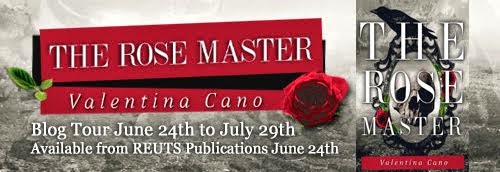







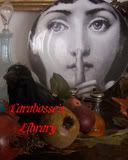












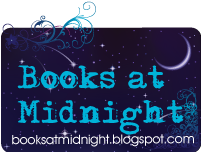



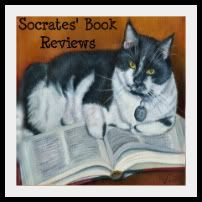



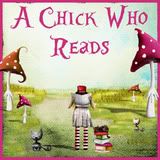












No comments:
Post a Comment